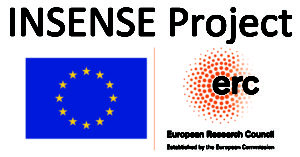A long one representing years of work from Ludwig.
Barbaro, L., Peelen, M.V., & Hickey, C (in press). Valence, not utility, underlies reward-driven prioritization in human vision. Journal of Neuroscience. <link>
Objects associated with reward draw attention and evoke enhanced activity in visual cortex. What is the underlying mechanism? One possibility is that reward’s impact on vision is mediated by unique circuitry that modulates sensory processing, selectively increasing the salience of reward-associated stimuli. Alternatively, effects of reward may be part of a more general mechanism that prioritizes the processing of any beneficial object, importantly including stimuli that are associated with the evasion of loss. Here, we test these competing hypotheses by having male and female humans detect naturalistic objects associated with monetary reward, the evasion of equivalent loss, or neither of these. If vision is economically normative, processing of objects associated to reward and evasion of loss should be prioritized relative to neutral stimuli. Results from fMRI and behavioural experiments show that this is not the case: while objects associated with reward were better detected and represented in ventral visual cortex, detection and representation of stimuli associated with the evasion of loss was degraded. Representations in parietal cortex reveal a notable exception to this pattern, showing enhanced encoding of both reward- and loss-associated stimuli. Experience-driven visual prioritization can thus be economically irrational, driven by valence rather than objective utility.
Read More
